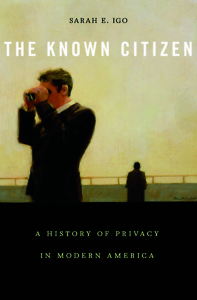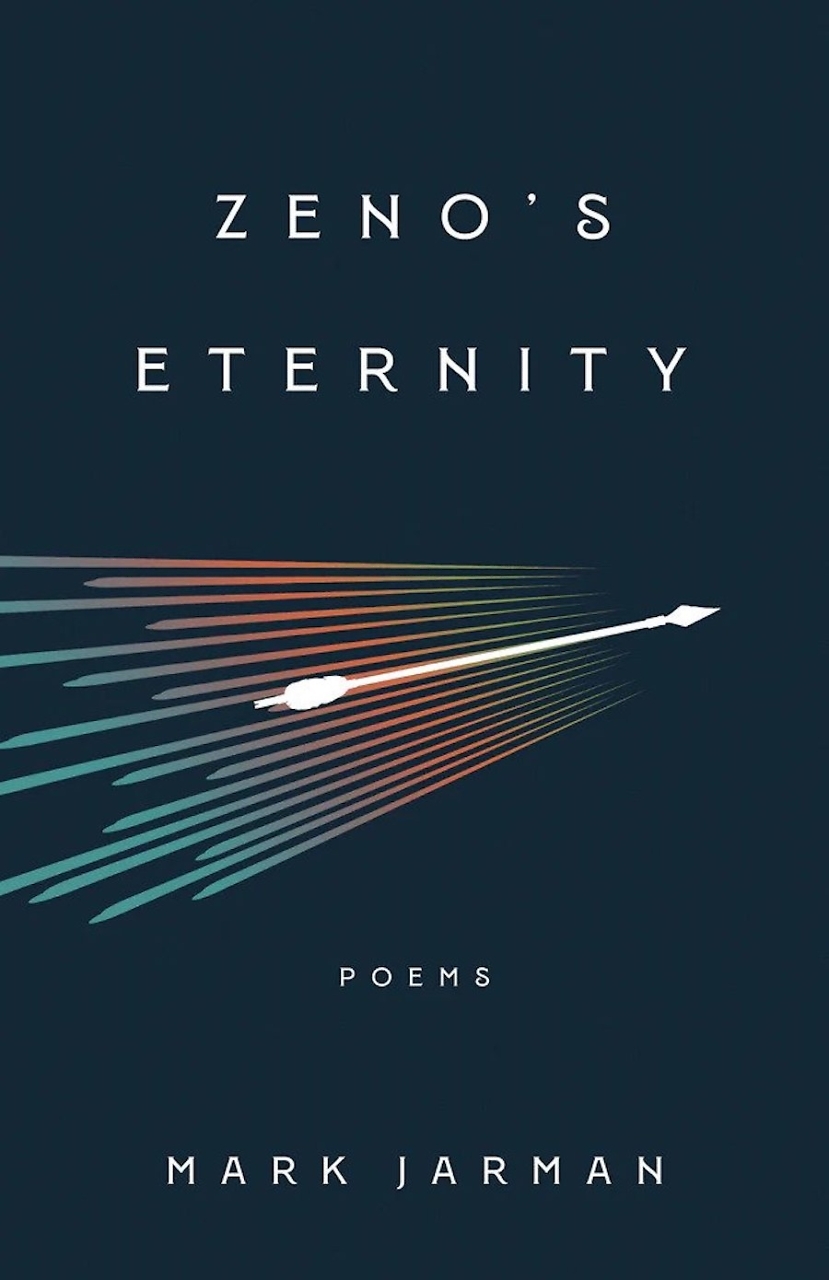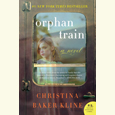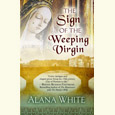Unanticipated Consequences
Sarah E. Igo’s The Known Citizen considers the case for privacy
On April 28, The New York Times joined virtually every other journalism venue in reporting the arrest of the Golden State Killer, a serial rapist and murderer who preyed upon women and men in California from 1976 to 1986. The trail went cold decades ago, but law enforcement, sifting through DNA results from a genealogy website, recently turned up a distant relative of the killer and backtracked through forensic evidence to pinpoint Joseph James DeAngelo, a former policeman. The capture of this monster wasn’t all good news, however. As the Times noted, “privacy and ethical issues glossed over in the public’s rush to embrace DNA databases are now glaringly apparent.”
 In her sweeping, meticulously researched new book, The Known Citizen: A History of Privacy in Modern America, Sarah E. Igo, a professor at Vanderbilt University, charts the evolution of privacy as a peculiarly American principle; along the way she probes a range of feelings—pro, con, ambivalent. She commences her tale with the nineteenth century’s revolution in communications technology, from telegraph to telegram to telephone, which potentially revealed one person’s private business to other parties.
In her sweeping, meticulously researched new book, The Known Citizen: A History of Privacy in Modern America, Sarah E. Igo, a professor at Vanderbilt University, charts the evolution of privacy as a peculiarly American principle; along the way she probes a range of feelings—pro, con, ambivalent. She commences her tale with the nineteenth century’s revolution in communications technology, from telegraph to telegram to telephone, which potentially revealed one person’s private business to other parties.
As publicity-crazed hucksters rose—think P.T. Barnum—the impulse to draw moral and legal lines around one’s privacy grew as well. The right to privacy, as we now understand it, was born in an 1890 article that appeared in the Harvard Law Review. The authors, Samuel Warren and Louis Brandeis (the future Supreme Court Justice), defined it as “the right to be left alone.”
That declarative statement, both resilient and elastic, unfolds over The Known Citizen. The invention of Kodak cameras touched off a fresh round of legal wrangling, and a major challenge came with the New Deal, as Franklin D. Roosevelt expanded the reach of government to assuage national suffering: with the creation of Social Security, each citizen received a number that would forever bureaucratize American lives—the “big data” of the Depression era.
 Concerns surrounding privacy, and Americans’ contradictory feelings about it, flared again with the Cold War. Igo is particularly astute at guiding the reader through thickets of McCarthy-era paranoia, from Soviet spies (real and imagined) to neighbors eavesdropping on each other, listening for clues to Communist sympathies. “We can track a blossoming concern with the vanishing boundary between the self and the social world,” she writes. “The puzzle of postwar privacy, as well as Cold War-era individualism, was that the person herself seemed porous, her perimeter unfixed, her very being improperly inhabited by the larger society. This was a new stage in Americans’ thinking about the known citizen, and it would make something akin to psychological privacy both an urgent problem and an elusive goal.”
Concerns surrounding privacy, and Americans’ contradictory feelings about it, flared again with the Cold War. Igo is particularly astute at guiding the reader through thickets of McCarthy-era paranoia, from Soviet spies (real and imagined) to neighbors eavesdropping on each other, listening for clues to Communist sympathies. “We can track a blossoming concern with the vanishing boundary between the self and the social world,” she writes. “The puzzle of postwar privacy, as well as Cold War-era individualism, was that the person herself seemed porous, her perimeter unfixed, her very being improperly inhabited by the larger society. This was a new stage in Americans’ thinking about the known citizen, and it would make something akin to psychological privacy both an urgent problem and an elusive goal.”
Legal action ebbed and flowed until the landmark Supreme Court 1965 decision Griswold v. Connecticut, in which Estelle Griswold challenged that state’s anti-contraception laws on the basis of a right to marital privacy—and won. As Igo shrewdly notes, the language of Griswold was vague and confusing: even the majority of seven Justices couldn’t firm up a definition of privacy.
Once the right to privacy was enshrined, however feebly, in federal law, unanticipated consequences followed. The 1970s ushered in a struggle over just what constituted privacy both within and beyond the parameters set out by Griswold. First Lady Betty Ford’s highly publicized mastectomy, meant to highlight the importance of breast-cancer treatment, struck many as too much information. The spectacle of PBS’s An American Family rattled viewers uncomfortable with divorce and homosexuality. And Roe v. Wade, the Supreme Court’s 1973 protection of a woman’s right to an abortion under the precedent of Griswold, ignited a civil war that continues to scorch everything in its path.
The Known Citizen is a scholarly book meant for an academic audience, but Igo gives us the definitive biography of an idea that all readers should both cherish and fear. It’s fitting, then, that she shifts her tone at book’s end, closing with a literary riff that illuminates the intricate strands of privacy, celebrating authors from Sylvia Plath to Tobias Wolff, works such as Girl, Interrupted and Angela’s Ashes. When even our DNA may not “belong” to us, The Known Citizen is essential reading.
 Hamilton Cain is the author of This Boy’s Faith: Notes from a Southern Baptist Upbringing and a finalist for a 2006 National Magazine Award. A native of Chattanooga,
Hamilton Cain is the author of This Boy’s Faith: Notes from a Southern Baptist Upbringing and a finalist for a 2006 National Magazine Award. A native of Chattanooga,


